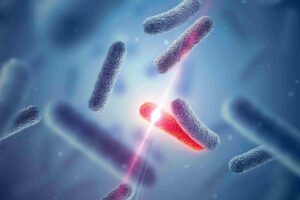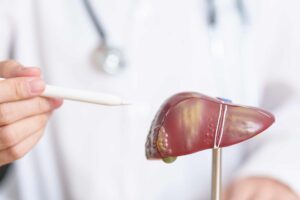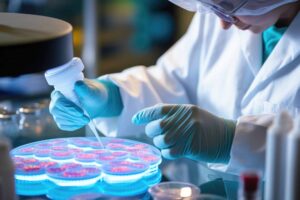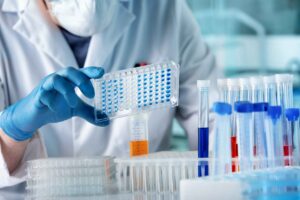What is already known on this topic
Immunotherapy, a type of treatment that helps the immune system to attack tumor cells, has helped to prolong the survival of people with fatal cancers. However, immunotherapy has had limited success in people with triple-negative breast cancer (TNBC), which is typically more aggressive, harder to treat, and more likely to come back than other types of breast cancers.
What this research adds
By analyzing the microbiota and the microbial metabolites of 360 women with TNBC, researchers found that Clostridiales bacteria and the related metabolite trimethylamine N-oxide (TMAO) were more abundant in tumors with increased numbers of immune cells, which indicate an active immune response against the tumors. Compared to people with lower blood levels of TMAO, those with higher TMAO levels responded better to immunotherapy. TMAO appears to induce pyroptosis, an inflammatory form of programmed cell death, thus increasing antitumor immunity in TNBC.
Conclusions
The findings suggest that microbial metabolites such as TMAO could be used to boost the efficacy of immunotherapy in people with TNBC.
Triple-negative breast cancer, or TNBC, affects about 13 in 100,000 women each year. It’s one of the most aggressive types of breast cancer, and one of the hardest to treat. Now, researchers have found that a specific microbial metabolite may boost the efficacy of anticancer therapy in people with TNBC.
The findings, published in Cell Metabolism, could inform the development of improved treatments for TNBC.
Nowadays, many fatal cancers are treated with immunotherapy, a type of treatment that helps the immune system fight tumor cells. However, immunotherapy has had limited success in people with TNBC.
“Commensal microbiota have been proven to colonize the mammary gland, but whether and how they modulate the tumor microenvironment remains elusive,” the researchers say. To address this question, the team — led by Yi-Zhou Jiang and Zhi-Ming Shao at Shanghai Medical College and Yumei Wen at Fudan University — set out to analyze the microbiota and the microbial metabolites of 360 women with TNBC.
Choline-rich diet
The researchers found that Clostridiales bacteria and the related metabolite trimethylamine N-oxide (TMAO) were more abundant in tumors with increased numbers of immune cells, which indicate an active immune response against the tumors. Previous studies showed that Clostridiales bacteria can produce trimethylamine, the precursor of TMAO.
Compared to people with lower blood levels of TMAO, those with higher TMAO levels responded better to immunotherapy, the researchers found. This finding confirms the observation that people who respond to immunotherapy tend to have increased abundances of Clostridiales in both tumor microbiota and gut microbiota.
Scientists have known that TMAO can form after eating foods that contain choline. So, the researchers fed a choline-rich diet to a mouse model of TNBC. The choline-rich diet led to an increase in TMAO in the tumor tissues of mice, and it inhibited tumor growth by promoting antitumor immunity.
Antitumor immunity
Next, the team studied the antitumor effects of TMAO in the same mouse model of TNBC. Their analysis revealed that TMAO inhibited tumor growth by activating CD8+ T cells, a group of immune cells that is important for tumor surveillance and antitumor activity. Reducing the number of CD8+ T cells in mice attenuated the antitumor effects of TMAO, the researchers found.
Further experiments showed that TMAO induces pyroptosis, an inflammatory form of programmed cell death, thus increasing antitumor immunity in TNBC.
Although more research is needed to uncover the mechanisms through which TMAO induces pyroptosis, the findings suggest that administering this metabolite and its precursor choline could be beneficial for people with TNBC. “A choline-rich diet may represent a potentially feasible therapy to activate antitumor immunity in patients with TNBC,” the researchers say.











